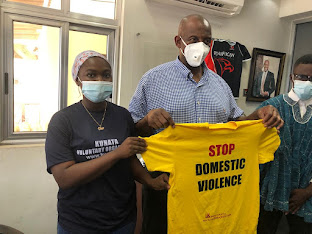Accra — Policy Analyst at the Kunata Voluntary Organisation, Mr. Abdallah Musah Alhassan, has made a passionate appeal for the government and development partners to prioritize vocational and skills training programs for head porters (Kayayei) across Ghana, describing the move as essential to transforming their economic conditions and restoring their dignity.
 |
| Abdallah Musah Alhassan, Policy Analyst |
According to Mr. Alhassan, many young women and girls migrate from northern Ghana to the major cities in search of economic opportunities, only to end up working as head porters under harsh and unsafe conditions. He stressed that most of these women live in extreme poverty, exposed to exploitation, poor health, and social neglect.
“The Kayayei phenomenon has become a symbol of urban poverty and gender inequality,” he said. “We cannot continue to watch thousands of young women carry heavy loads in our markets when they have the potential to contribute meaningfully to the economy through skill-based empowerment.”
Economic Empowerment Through Skills Development
Mr. Alhassan proposed that government agencies, such as the Ministry of Gender, Children and Social Protection and the National Youth Authority, collaborate with non-governmental organizations to establish structured vocational training centers for Kayayei in Accra, Kumasi, and other major trading hubs.
He emphasized that training in areas such as dressmaking, catering, hairdressing, soap making, and digital literacy could empower these women to become self-employed and economically viable.
“What the Kayayei need is not pity, but opportunity,” he added. “With proper training, mentorship, and access to microcredit, these women can transition from street survival to productive entrepreneurship.”
A Call for Inclusive Development
Mr. Alhassan also urged policymakers to integrate Kayayei empowerment into Ghana’s broader social protection framework, noting that sustainable poverty reduction can only be achieved when marginalized groups are included in national development plans.
He cautioned that failure to address the Kayayei challenge could perpetuate cycles of poverty, rural-urban migration, and social exclusion.
“Empowering Kayayei is not just a social responsibility — it’s a national investment,” he stated. “If we train one Kayayei, we are empowering an entire family and strengthening community resilience.”
Kunata Voluntary Organisation’s Commitment
As part of its ongoing advocacy work, Kunata Voluntary Organisation has been championing community-based interventions that support vulnerable women and youth. Mr. Alhassan reaffirmed the organization’s readiness to partner with local authorities and corporate entities to implement sustainable vocational programs.
He also appealed to philanthropists and development agencies to sponsor skill training projects and provide startup tools for Kayayei who complete training programs.
“The time has come to turn empathy into action,” he said. “Let us transform the lives of these hardworking women by equipping them with skills that ensure dignity, independence, and hope for a better future.”
A Vision for Dignity and Inclusion
Mr. Alhassan concluded that addressing the plight of Kayayei is a moral and developmental imperative. He emphasized that empowering them through skills acquisition aligns with Ghana’s commitment to the Sustainable Development Goals (SDGs), particularly those focused on poverty eradication, gender equality, and decent work.
“Every woman deserves the chance to live with dignity and purpose,” he said. “By investing in Kayayei, we invest in Ghana’s social and economic transformation.”





